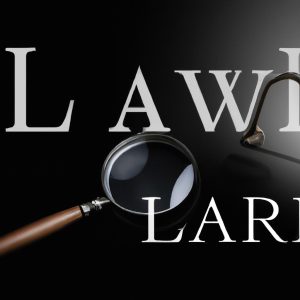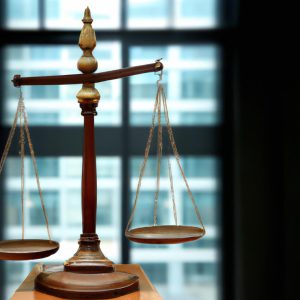In the intricate tapestry of estate planning, personal trusts stand as pillars of security and assurance for individuals looking to protect and preserve their assets for future generations. At Morgan Legal Group, nestled in the iconic landscape of New York City, we specialize in navigating the complexities of personal trusts estate planning with precision and expertise. From safeguarding wealth to ensuring seamless distribution, our seasoned team of legal professionals is committed to crafting customized solutions tailored to our clients’ unique needs and goals. Join us as we delve into the realm of personal trusts estate planning, where strategy meets peace of mind.
Understanding the Role of Personal Trusts in Estate Planning
When it comes to estate planning, personal trusts play a crucial role in ensuring that your assets are distributed according to your wishes. A personal trust is a legal arrangement where a trustee holds assets on behalf of a beneficiary or beneficiaries. This allows you to have control over how your assets are managed and distributed, even after you pass away.
One of the key benefits of utilizing personal trusts in estate planning is the ability to avoid probate. By transferring your assets into a trust, you can bypass the lengthy and costly probate process, ensuring that your loved ones receive their inheritance in a timely manner. Additionally, personal trusts provide increased privacy and protection for your assets, as they are not subject to public record like a will. Consulting with an experienced estate planning attorney can help you determine the best type of personal trust for your unique financial situation.
Key Considerations When Setting Up a Personal Trust
When it comes to estate planning, creating a personal trust can provide numerous benefits for individuals looking to protect their assets and provide for their loved ones. However, there are several key considerations to keep in mind when setting up a trust to ensure it aligns with your goals and wishes.
- Choose the Right Trustee: Selecting a trustworthy and responsible individual or institution to manage the trust is crucial. Consider factors such as financial expertise, reliability, and availability when making this decision.
- Define the Terms Clearly: Clearly outline the terms and conditions of the trust to avoid any confusion or disputes in the future. Specify how the assets should be distributed, under what circumstances, and to whom.
| Consideration | Importance |
|---|---|
| Asset Protection | High |
| Tax Efficiency | Medium |
| Beneficiary Designation | High |
Maximizing Tax Efficiency Through Personal Trusts
When it comes to estate planning, utilizing personal trusts can be a powerful tool in maximizing tax efficiency and protecting your assets for future generations. Personal trusts allow individuals to transfer assets to designated beneficiaries while minimizing tax liabilities and ensuring their wishes are carried out according to their specific instructions.
By establishing a personal trust, individuals can not only designate how their assets will be distributed but also potentially reduce estate taxes, avoid probate, and protect their assets from creditors. Additionally, personal trusts can provide a level of privacy and control that may not be achievable through other estate planning strategies. Trusts can also be used to protect assets for minor children or individuals with special needs, ensuring their financial security for years to come.
Navigating Complexities in Personal Trust Administration
In personal trust administration, there are various complexities that individuals may encounter. One of the key challenges is ensuring that the trust is managed and distributed according to the grantor’s wishes. This requires a meticulous understanding of the trust document and a keen eye for detail.
<p>Moreover, navigating the tax implications of trusts can be a daunting task. Understanding the tax laws and regulations surrounding trusts is crucial to ensuring compliance and minimizing tax liabilities. Working with an experienced estate planning attorney can help individuals effectively navigate these complexities and ensure that their personal trust administration is handled properly.</p>Q&A
Q: What is a personal trust and how does it factor into estate planning?
A: A personal trust is a legal arrangement in which assets are held by a trustee on behalf of a beneficiary. In estate planning, personal trusts can be used to manage and distribute assets according to the wishes of the trust creator.
Q: Why would someone choose to set up a personal trust for their estate planning?
A: There are several reasons someone may choose to set up a personal trust for their estate planning. This could include providing for minor children or family members with special needs, protecting assets from creditors or lawsuits, and minimizing estate taxes.
Q: How do personal trusts differ from other estate planning tools, such as wills or power of attorney?
A: Personal trusts differ from wills in that they allow for assets to be distributed immediately upon death, without going through probate. They also differ from power of attorney in that they continue to operate after the grantor’s death, ensuring that assets are managed and distributed according to the trust terms.
Q: Are there different types of personal trusts that can be used in estate planning?
A: Yes, there are several different types of personal trusts that can be used in estate planning, including revocable trusts, irrevocable trusts, and testamentary trusts. Each type of trust has its own unique benefits and considerations to consider.
Q: What should someone consider before setting up a personal trust for their estate planning?
A: Before setting up a personal trust for estate planning, it is important to consider the goals and objectives of the trust, as well as the financial implications and tax consequences. It is also important to work with a qualified attorney or financial advisor to ensure that the trust is set up correctly and in accordance with the law.
Concluding Remarks
In conclusion, personal trusts can be a powerful tool in estate planning, providing individuals with a means to protect and manage their assets for the benefit of their loved ones. Whether used for tax planning, asset protection, or ensuring a smooth transfer of wealth to future generations, personal trusts offer flexibility and peace of mind. By working with a trusted advisor, individuals can create a comprehensive estate plan that meets their unique needs and goals. So, consider incorporating personal trusts into your estate plan to safeguard your legacy and create a lasting impact for generations to come.
Personal Trusts Estate Planning: Why It’s Essential for Your Financial Future
In today’s fast-paced and ever-changing world, it’s crucial to have a solid financial plan in place. This includes planning for your future, as well as ensuring your assets are protected and distributed according to your wishes after you’re gone. One important aspect of financial planning that often gets overlooked is estate planning. Within estate planning, personal trusts play a key role in protecting your assets and providing for your loved ones in the future. In this article, we will delve into the details of personal trusts estate planning, its benefits, and practical tips for setting up your own trust.
What is a Personal Trust?
In simple terms, a personal trust is a legal arrangement in which a person’s assets are held and managed by a trustee for the benefit of the designated beneficiaries. The trustee can be an individual, a bank, or a trust company, and they are responsible for managing the trust’s assets in accordance with the terms established by the grantor (the person who creates the trust).
Types of Personal Trusts
There are various types of personal trusts that can be tailored to fit your specific needs and financial situation. Some of the most common types include:
1. Revocable Trusts: Also known as living trusts, these are trusts that can be altered or canceled by the grantor during their lifetime. They are commonly used to avoid probate and provide for the grantor’s incapacity.
2. Irrevocable Trusts: As the name suggests, these trusts cannot be changed or altered once they are created. They can be beneficial in reducing estate taxes and protecting assets from creditors.
3. Charitable Trusts: These trusts are designed to benefit a charitable organization while also providing for the grantor’s loved ones.
4. Special Needs Trusts: These trusts are set up to provide for individuals with special needs without jeopardizing their eligibility for government benefits.
Why is Personal Trusts Estate Planning Important?
1. Avoids Probate: Probate is the legal process of verifying a will and distributing assets after a person’s death. It can be a lengthy and expensive process and can tie up your assets for months or even years. With a personal trust, your assets can be distributed to your beneficiaries without going through probate, saving time and costs.
2. Provides Privacy: Wills are public documents, and anyone can access the information contained within them. In contrast, trusts are private documents and provide a higher level of confidentiality for your beneficiaries and the details of your assets.
3. Protects Assets: Personal trusts can be an effective way to protect your assets from potential lawsuits, divorce, and bankruptcy. By placing your assets in a trust, they are no longer considered part of your personal belongings and, therefore, are not at risk.
4. Ensures Control: A personal trust allows you to maintain control over your assets even after your passing. You can specify how and when your assets will be distributed to your beneficiaries, giving you peace of mind that your wishes will be carried out.
Practical Tips for Setting Up a Personal Trust
1. Choose the Right Trustee: When setting up a trust, the most crucial decision is choosing the right trustee. This person should be someone you trust to manage your assets and handle your affairs in accordance with your wishes.
2. Be Thorough and Specific: When drafting the terms of your personal trust, be as thorough and specific as possible. This will ensure that your assets are distributed according to your exact wishes and avoid any confusion or conflicts among your beneficiaries.
3. Consider Your Goals: Setting up a trust is not a one-size-fits-all solution. Consider your overall financial goals and objectives, and choose a trust that aligns with these goals.
4. Update Regularly: Life is ever-changing, and it’s essential to review and update your personal trust regularly. This will ensure that it continues to reflect your current financial situation and your desires for asset distribution.
In Conclusion
Personal trusts are an essential tool in estate planning as they offer a range of benefits and provide peace of mind knowing that your assets will be distributed according to your wishes. By choosing the right type of trust, being specific in your instructions, and regularly reviewing and updating your trust, you can ensure that your financial future and the well-being of your loved ones are secure. Seek the guidance of a professional estate planner to help you navigate the process and ensure that your personal trust is set up correctly. So, start planning today and leave a legacy that will continue to benefit your family and loved ones for generations to come.





